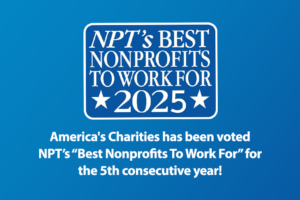Sarah Ford | May 5, 2015
SPLC President Richard Cohen urges Congress not to tamper with birthright citizenship
Altering the 14th Amendment’s promise of citizenship to all children born within the United States would undermine one of our nation’s bedrock principles and risk creating a new population of second-class citizens, Southern Poverty Law Center President Richard Cohen told members of Congress today.
In testimony submitted to the House Subcommittee on Immigration and Border Security, Cohen said the Citizenship Clause of the 14th Amendment “was intended to put the issue of birthright citizenship beyond the reach of congressional legislation.”
The immigration subcommittee, headed by Republican Rep. Steve King of Iowa, held the hearing to examine whether birthright citizenship should be altered either by legislation or constitutional amendment.
The 14th Amendment, enacted in the wake of the Civil War, overruled the U.S. Supreme Court’s infamous Dred Scottdecision and ensured that former slaves and their descendants were U.S. citizens. Some legal scholars have argued, contrary to Supreme Court rulings, that the amendment was not intended to grant citizenship to everyone born on U.S. soil, in particular the children of undocumented immigrants.
Cohen, however, noted that the intent was never in doubt – that it applied to anyone born within the geographic boundaries of the country. “[T]he congressional debate surrounding the Citizenship Clause makes it absolutely clear that its reach was never intended to be limited solely to those persons previously held in servitude,” Cohen said.
Cohen noted that “there has been tension in our country’s history between the egalitarian principle underlying the Constitution’s birthright citizenship clause and our nation’s immigration policy,” which “all too often, has been animated by distinctions based on race and ethnicity.”
“Today, we are witnessing another backlash to our nation’s changing demographics and are engaged in serious debates about our immigration policy,” Cohen said. “Regardless of one’s position on immigration policy questions, the sanctity of the birthright citizenship clause should not be disturbed.”
Cohen told the story of SPLC client Wendy Ruiz, the daughter of undocumented farmworkers in Florida. Ruiz was born and raised in Florida. But when she applied for college, she was charged out-of-state tuition – more than triple the in-state rate – simply because her parents were undocumented.
In 2012, a federal court recognized the rights of Ruiz and other children of undocumented parents, holding that demanding higher tuition was against “a fundamental principle of American jurisprudence,” that children should not be punished for the actions of their parents. The ruling opened the door to a higher education to thousands of children in Florida. Now, Ruiz has obtained an associate degree and is continuing to pursue her education.
Last Fall, Ruiz spoke at the Dexter Avenue King Memorial Baptist Church in Montgomery, Alabama, the church where Dr. Martin Luther King Jr. and his allies launched the modern civil rights movement.
“Wendy told a deeply American story,” Cohen told lawmakers during his oral testimony. “She talked about the struggles of her farmworker parents; she talked about her determination to get an education; she talked about her dream of becoming a lawyer so she could give back to the community.
“It is simply inconceivable to me that our country would deny the blessings of citizenship to the Wendy Ruizes of the world. Our immigration system may be broken; but we should resist calls to roll back birthright citizenship clause in an effort to fix it. The clause expresses a fundamental principle of our democracy – that there are no second-class citizens; that all persons born in this country, regardless of the status of their parents, are equal citizens under the law.”

Get Resources and Insights Straight To Your Inbox
Explore More Articles
For Fifth Consecutive Year America’s Charities Named ‘Best Nonprofit To Work For’
Washington, D.C. – April 1, 2025 – America’s Charities, the nonprofit that mobilizes the power of giving as a leading provider of volunteering, workplace giving,…
Read ArticleWorkplace Fundraising + Volunteering Summit (April 2nd and 3rd, 2025)
Join us in attending this virtual summit! The America’s Charities team is joining up with other leading voices in the workplace giving space for a…
Read ArticleThe Time to Act is Now
The results of the 2024 National Assessment of Educational Progress (NAEP) are in, and the findings are, in a word, heartbreaking. This assessment serves as…
Read ArticleGet Resources and Insights Straight To Your Inbox
Receive our monthly/bi-monthly newsletter filled with information about causes, nonprofit impact, and topics important for corporate social responsibility and employee engagement professionals, including disaster response, workplace giving, matching gifts, employee assistance funds, volunteering, scholarship award program management, grantmaking, and other philanthropic initiatives.




